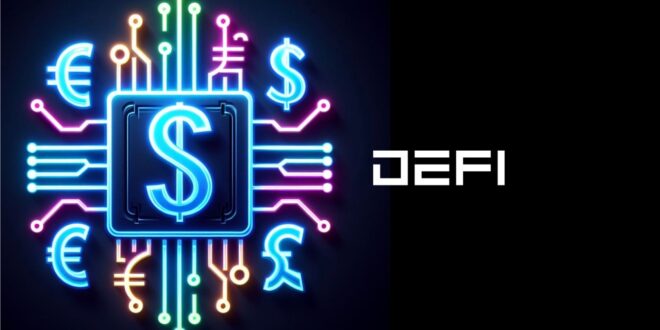Decentralized Finance and Fintech: A Match Made for Mainstream Adoption
Why Fintechs Are the Key to Unlocking the Potential of DeFi in 2025
DeFi Meets Fintech: The Future of Finance is Decentralized
The DeFi Revolution: How Fintech Companies Are Shaping the Future of Crypto
DeFi’s Mainstream Adoption: How Fintech Companies Will Drive the Future of On-Chain Finance
As the crypto industry enters another bullish phase in 2025, optimism around decentralized finance (DeFi) is growing, with hopes of widespread adoption. The technological benefits of DeFi are immense, as noted by Robinhood CEO Vlad Tenev, who highlighted the efficiency advantages of using decentralized systems.
However, despite these technological advantages, Bitcoin and other DeFi platforms still face challenges in terms of ease and user convenience. While DeFi services have become more user-friendly, the barrier to mass adoption remains high.
A Breakthrough on the Horizon
The good news is that a breakthrough is coming. Fintech companies, known for their focus on user-friendly design, are starting to show more interest in DeFi solutions. These companies have a culture of agility and innovation, which makes them well-suited to adopt DeFi solutions that operate on decentralized networks. Many DeFi platforms are open-source, giving developers full access to the underlying code, which aligns well with fintech’s open approach to tech development.
How Fintechs Will Drive On-Chain Finance
Fintech companies are increasingly blurring the lines between traditional finance and crypto. Centralized exchanges like Coinbase and Binance have introduced debit cards, while fintech companies like Revolut and Robinhood are building or acquiring crypto onramps and exchanges. This growing convergence positions fintechs as key players in bringing crypto closer to mainstream users.
Some major fintech moves into crypto include Stripe’s $1.1 billion acquisition of Bridge and PayPal’s creation of $PyUSD. These actions showcase how stablecoins are revolutionizing payments and enhancing tokenized deposit accounts. Stablecoins are poised to play a major role in transforming payment infrastructure, and DeFi protocols are ready to serve as the backbone for financial services fintechs offer.
What Fintechs Can Gain from DeFi
Unlike traditional finance (TradFi) companies, fintech firms don’t own the infrastructure behind their products. They typically rely on closed, proprietary systems owned by larger financial institutions, which increases costs and limits flexibility. DeFi provides an alternative with open, publicly accessible infrastructure that is transparent, user-owned, and cost-effective.
DeFi’s open infrastructure also allows fintech firms to create products more quickly and cost-effectively, which can reduce operational costs and improve profit margins. These savings can often be passed on to customers, resulting in lower fees.
Moreover, fintechs benefit from tapping into large, existing DeFi networks, which provide access to global marketplaces and more efficient services. This integration leads to more competitive pricing for all participants in areas like trading, borrowing, and lending.
Perhaps most importantly, DeFi allows companies to have greater control over how they interact with open financial infrastructure. Companies can manage risk tolerance and compliance requirements while avoiding the need to build siloed systems. Many DeFi products are designed to be shared across multiple companies, supporting use cases like foreign exchange, yield-bearing accounts, lending, and more.
Acer Debuts AI-Ready Swift Go 14 Laptop with New Intel Core Ultra Processors
 Business Sandesh Indian Newspaper | Articles | Opinion Pieces | Research Studies | Findings & News | Sandesh News
Business Sandesh Indian Newspaper | Articles | Opinion Pieces | Research Studies | Findings & News | Sandesh News



